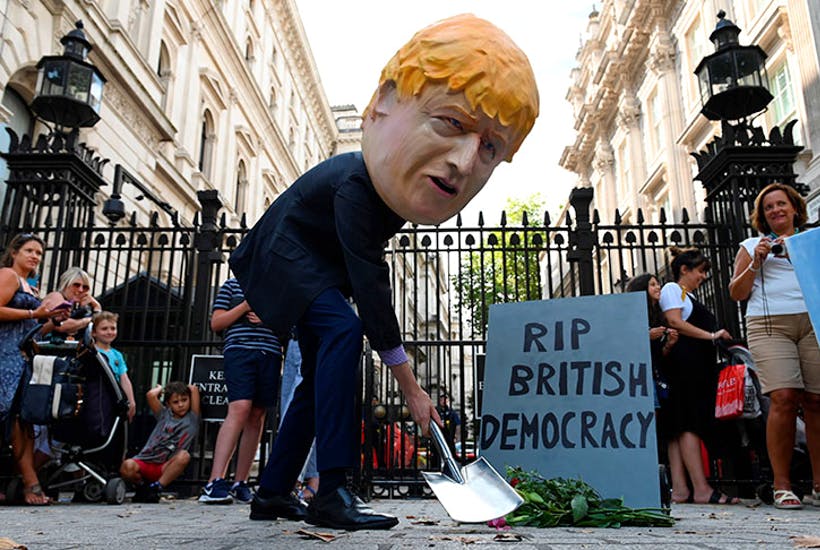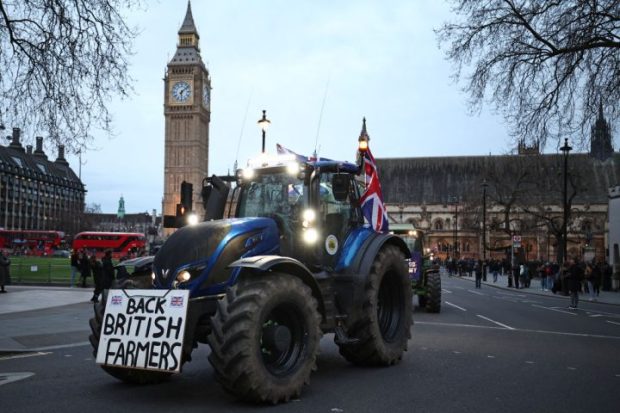It is almost 11 years to the minute since we reached the eye of the banking-crisis storm. And even though I was right in the middle of it, reporting on it day and night, I feel much more anxious today as I chronicle our political and constitutional crisis.
The reason is simple. However egregious the harm to our living standards of the financial shock, markets and economies always bounce, always recover, eventually. Part of the widespread collapse in trust in our leaders stems from how much our living standards suffered and the slowness of the recovery. But a kind of Newtonian law applies: what falls must bounce back.
What is threatening to fall off the wall at the moment is Humpty Dumpty: respect for and confidence in our MPs, courts and the rule of law; the capacity of our unwritten constitution to resolve an important argument about our governance without resort to coercion; the very unity of the kingdom; how this place has worked, avoiding civil war, since the civil war.
Some of you will doubtless accuse me of namby-pamby, London, elitist neurosis when I say there is much more at stake than how or when or whether we leave the EU. But as David Cameron tells us in his autobiography that his EU referendum was a historical necessity, the former prime minister provides no panegyric for the lethal tension he unleashed between the will of the people and the will of parliament.
We are an angrily divided nation. “Boris Johnson has tapped into something important,” one Labour MP tells me, hotfoot from knocking on doors and being told – against all his instincts – to help the PM expedite Brexit by 31 October.
Some 11 years ago, the authorities – governments and central banks – were agonising over whether to rescue Lehman Brothers, to lessen the inevitable economic carnage, and eventually let it implode. But the authorities had a conspicuous choice, even if in the view of many they made the wrong choice.
The agonising horror of our democratic crisis is that there are no authorities, because of the way the executive and legislature – PM and MPs – are at war with each other, over the most important decision of this and most generations.
A microcosm of the madness is the disclosure by one of the most influential barrister promoters of legal obstacles to a no-deal Brexit, Jolyon Maugham, that the recently enacted law to delay Brexit contains an important legal loophole – such that Boris Johnson could use parliamentary assent for the Brexit Withdrawal Agreement BEFORE October 19 as a device to engineer a no-deal Brexit on 31 October. This is Through-the-Looking-Glass politics like nothing any of us have witnessed.
I don’t know whether to laugh or weep.
Whether in good faith or bad – and I have to assume good faith, or I would feel obliged to emigrate to the moon – the Prime Minister insists he has not given up on negotiating a revised Brexit deal that MPs could support and would mean we leave the EU in less disorderly fashion on 31 October.
EU lore and parliamentary arithmetic are the seemingly lethal vice to those hopes – though surprising numbers of Labour MPs tell me of their desperation that Johnson should bring them a deal they could support, against the orders of their leader.
Honestly I don’t know where we are heading. As I have said, anyone who tells you different is knave or idiot.
But even if we leave on 31 October, deal or no deal, that would be just the end of one ordeal and the start of another. Because there is no consensus in the current parliament about what post-Brexit Britain’s future relationship with the EU should be.
The only route to any kind of reconciliation is a general election. And given the political fracturing of voters, that may yield no parliamentary majority and no healing.
Our version of democracy is facing a test like none since we faced the threat of the Nazis. At least in 1939 it was easy to identify the enemy.
Robert Peston is ITV’s Political Editor. This article originally appeared on his ITV News blog.
Got something to add? Join the discussion and comment below.
Get 10 issues for just $10
Subscribe to The Spectator Australia today for the next 10 magazine issues, plus full online access, for just $10.





















Comments
Don't miss out
Join the conversation with other Spectator Australia readers. Subscribe to leave a comment.
SUBSCRIBEAlready a subscriber? Log in